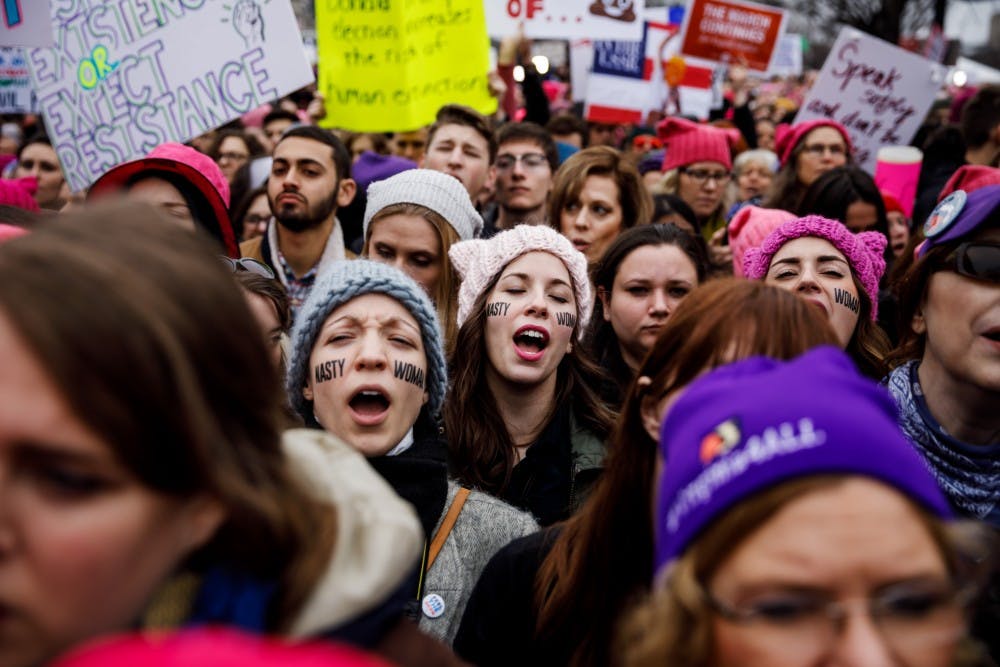"Women’s rights are human rights" — that’s the message made clear by thousands of pink-hatted demonstrators who marched through Washington, D.C. Jan. 21, the day after the inauguration of Donald Trump.
Streets were flooded with an estimated 500,000 demonstrators — including multiple groups of Ball State students. Marchers took to the streets demonstrating that when it comes to women’s rights, they will not spend the next four years being silent.
"Now is a really important time to speak up," said Adrian Lopez, a sophomore architecture major who drove to D.C. for the demonstration.
Lopez, along with sophomore social sustainability major Josie Bowman, said they felt drawn to make the trip due to their concerns for the future under a Trump administration.
"I feel as if my rights as a woman are being challenged," Bowman said. "I've seen Mike Pence speak at the statehouse, and how he wants to defund Planned Parenthood."
Pence has signed on to every anti-abortion bill since he came into office, including a bill to remove federal funding for Planned Parenthood. Bowman is concerned that the organization, which provides sexual and reproductive health care, education and information to nearly 5 million men, women and adolescents per year, is under threat with the Trump administration.
This concern has also grown for many Ball State students involved in Feminists For Action, including Shelby Leverrit, a junior social work and women's and gender studies major and public relations manager for Ball State's Feminists For Action.
"[Trump] is denying reproductive justice," Leverrit said. "And reproductive justice isn't just about abortion. Reproductive justice is our cancer screenings, and mammograms, and counseling for pregnant women, and Planned Parenthood is such a big part of that."
Approximately 600 similar demonstrations took place around the country Saturday in an attempt to unify people around issues of women's rights, immigration and civil rights, according to Women's March organizers. Leverrit said as a social work major, it was important she made her voice heard in the nation's capital for those who might not be able to do so.
"A lot of the stuff that [Trump's] said about people with disabilities, people of color, immigration ... all of those things negatively impact clients that I will work with in my future. If I don't step up and help them now, how will I help them later?" Leverrit said. "It's so important that we gather together and demonstrate that we are negatively affected by this administration. People will ignore it if they can't see it. If we make ourselves known in a way that's peaceful, people are going to be more likely to listen to us. Then we'll be more able to make a change."
Emma Engler, a sophomore cello performance major and president of Ball State Feminists for Action, said they were excited and nervous before going to the march, which they felt was a 'pivotal point in this country'.
“There’s always a thought in the back of your mind when you go to protest that something could go wrong, and this time was the same,” Engler said. “As soon as I got there, my worries stopped. The atmosphere was so accepting and welcoming of all people from all walks of life. I felt safer in that crowd of more than 500,000 than I have in places with only a couple thousand.”
Engler said some students from Feminists for Action had been sponsored to go to the march in the place of those who were unable to attend.
“We were surrounded by so many passionate people, people who really wanted to make a difference,” Engler said. “After this, I think we really can.”
Though Engler has attended protests in the past, they said “this event, and just the general energy around the country would definitely kick start me into starting to get involved. The time is now.”


